| Here are just a few of this week’s stories from the Michigan Department of Natural Resources:
See other news releases, Showcasing the DNR stories, photos and other resources at Michigan.gov/DNRPressRoom.
PHOTO FOLDER: Larger, higher-res versions of the images used below, and others, are available in this folder.
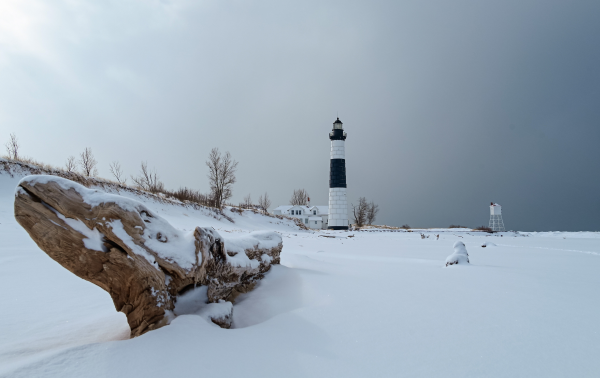 Want to see more pictures like this, taken by Michigan state parks photo ambassador Sarah Goodwin at Ludington State Park in Mason County? Visit Instagram.com/MiStateParks to explore photos and learn more about the photo ambassadors! For more on the photo ambassador program, call Stephanie Yancer at 989-274-6182. Want to see more pictures like this, taken by Michigan state parks photo ambassador Sarah Goodwin at Ludington State Park in Mason County? Visit Instagram.com/MiStateParks to explore photos and learn more about the photo ambassadors! For more on the photo ambassador program, call Stephanie Yancer at 989-274-6182.
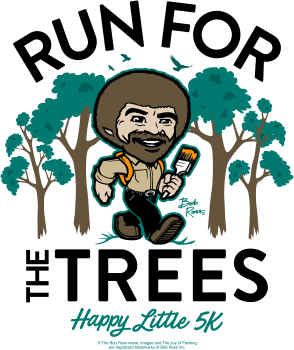 If you’ve been thinking about signing up for this year’s Bob Ross-inspired Happy Little (Virtual) 5K, now is the time. Registration for this state parks-supporting race closes March 1. If you’ve been thinking about signing up for this year’s Bob Ross-inspired Happy Little (Virtual) 5K, now is the time. Registration for this state parks-supporting race closes March 1.
April 22-29, walk, run or roll for this year’s Run for the Trees / Happy Little (Virtual) 5K. For $34 per person, you’ll receive a keepsake Happy Little T-shirt, a commemorative bib number and a finisher’s medal. An international shipping option is available for participants outside the United States. Group discounts (for parties of 10 or more) are available, too.
All race proceeds support management of invasive plant and forest pests and early detection surveys in Michigan state parks. Many of these locations have been affected by tree pests and diseases like emerald ash borer and oak wilt.
Over the past three years alone, more than 52,000 participants across all 50 states and several countries – including Australia, England and Mexico – have participated in the event, which has raised more than $1 million in net proceeds for Michigan.
Now in its fourth year, the Happy Little 5K program has expanded to include four other states. Michigan, Indiana, Ohio, South Carolina and Wisconsin will “lock arms” together to raise awareness and funding for stewardship efforts in state parks.
“We’re excited to work with other states to get people outdoors, while expanding our impact to protect state parks,” said Michelle O’Kelly, fund developer and Happy Little Trees race director for the DNR Parks and Recreation Division.
Inspired by Bob Ross’ love of the outdoors, Michigan’s “Happy Little Trees” program began with a partnership between the Michigan DNR, Bob Ross Inc. and hundreds of volunteers helping to plant trees at locations hard-hit by invasive pests and tree diseases across Michigan. The program quickly expanded to include the Happy Little 5k.
Learn more about the program at Michigan.gov/DNRHappyLittleTrees, or sign up for the race directly.
For more information, contact Michelle O’Kelly at 517-899-5211. |
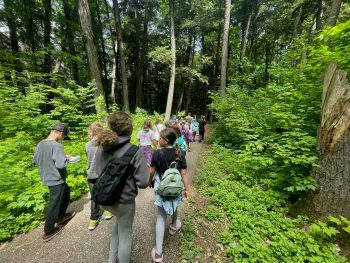 Looking for creative ways to get your preK-12 classrooms and other youth groups outdoors to learn about Michigan’s mighty forests? Apply for the Wheels to Woods program! Looking for creative ways to get your preK-12 classrooms and other youth groups outdoors to learn about Michigan’s mighty forests? Apply for the Wheels to Woods program!
We provide the wheels, you provide the lesson plan – let your imagination run wild and pick a theme that best meets the needs of your group. Past locations range from state parks and family forests to wetlands and woodlots. Classes cover a lot of ground: invasive plants, endangered species, maple syrup production, wood products and more. You might even consider finding community partners or bringing in an industry professional to give your class or learning group a one-of-a-kind experience.
“Although kids are spending less time outside in today’s fast-paced, tech-focused world, educators can capitalize on learning opportunities by bringing their students outdoors,” said Meagan Hoffman, Wheels to Woods program administrator. “Hands-on learning helps kids more deeply understand and relate to educational topics, and spending time in nature has mental and physical health benefits to help your students feel their best.”
Applications for the program are open now – take advantage of this valuable opportunity to connect kids to the woods or a forest products company for an educational field trip. Your learning group could receive a transportation reimbursement of up to $350 per bus or $1,000 per school.
This partner-supported program is funded by grants from the USDA Forest Service. For more information and to apply, visit WheelsToWoods.org.
Questions? Contact Meagan Hoffman at Admin@WheelsToWoods.org. |
 Are you looking for a summer volunteer opportunity that allows you to spend time on your favorite Michigan lake? Look no further than the MiCorps Cooperative Lakes Monitoring Program. Are you looking for a summer volunteer opportunity that allows you to spend time on your favorite Michigan lake? Look no further than the MiCorps Cooperative Lakes Monitoring Program.
For 50 years, program volunteers have collected valuable data on water quality and fish habitat in lakes statewide – information used by local communities, researchers and state agencies like the DNR to better protect and manage Michigan’s 11,000 inland lakes and the fish and wildlife that rely on them.
This community science opportunity gives you an inside look into what’s happening in your favorite lake. As part of this program, you’ll receive detailed instructions, training and equipment to collect this valuable data. You choose which lake to sample and which measurements to take. You can collect data on water quality (water clarity, nutrients, dissolved oxygen and algae), invasive species, native plants and shoreline conditions.
There is a small fee to cover the costs of supplies and analyzing samples, but volunteers often can collaborate with local lake associations or other organizations to help pay for these costs.
Want to show your lakes some love? Visit the CLMP enrollment webpage for more information or contact Erick Elgin (MSU Extension) at 231-928-1053 or Joe Nohner (DNR) at 517-599-6825.
The MiCorps Clean Lakes Monitoring Program is sponsored by the Michigan Department of Environment, Great Lakes, and Energy and is administered in partnership with MSU Extension, the Michigan Lakes and Streams Association and the Huron River Watershed Council. |
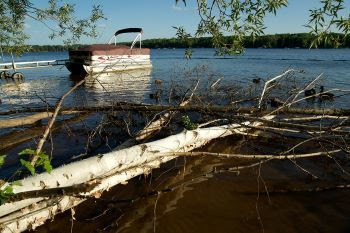 Many Michiganders love the thousands of inland lakes scattered across our state for their beauty, recreational enjoyment, cultural connections and more, but not everyone knows the benefits of natural, healthy shorelines – or how residents and visitors can help protect these places. Many Michiganders love the thousands of inland lakes scattered across our state for their beauty, recreational enjoyment, cultural connections and more, but not everyone knows the benefits of natural, healthy shorelines – or how residents and visitors can help protect these places.
If you want to learn more, don’t miss the Shoreline and Shallows Conference Thursday, March 9, hosted in person at the Kellogg Center in East Lansing
This year’s theme is “Improving Near Shore Habitat for People, Plants and Animals.” The conference starts off with the current state of Michigan’s inland lake shorelines, based on findings from the National Lake Assessment conducted by the Michigan Department of Environment, Great Lakes, and Energy.
Experts with the Wisconsin and Michigan departments of Natural Resources will discuss why woody structures are good for lakes and how they can be used for projects like “fish sticks” and “turtle logs.” The conference also will highlight one of the largest projects in Michigan for shoreline erosion control using woody structures.
Other topics include bioengineered shorelines, aquatic plants and best management practices associated with the updated shoreline permitting process.
“As development around lakes increases, native vegetation is often removed to make way for swimming beaches and ‘uncluttered’ yards, and that has huge negative effects,” said Joe Nohner, inland lakes habitat analyst with the DNR. “Natural shorelines with native vegetation such as flowering plants, shrubs and trees benefit lakes, plant and animal life, and property values in so many ways.”
Aquatic vegetation:
- Intercepts and prevents pollutants and nutrients from entering a body of water.
- Protects the shore from erosion by decreasing wave energy.
- Provides habitat, through plants and downed trees, for a variety of birds, mammals, reptiles and fish.
- Can increase property values by improving water quality and aesthetic appeal.
The Shoreline and Shallows Conference is for anyone interested in managing lakefront property in an environmentally friendly manner. Networking opportunities include an exhibitor hall, refreshment area and luncheon. Registration by Feb. 26 is $50. After that date, registration is $65. The cost includes lunch. Get the complete conference agenda and registration details.
The conference is hosted by the Michigan Natural Shoreline Partnership and its member organizations including the DNR, EGLE, Michigan State University Extension, Michigan State University’s Institute of Water Research and GEI Consultants.
Questions? Contact Joe Nohner (DNR), 517-599-6825 or Julia Kirkwood (EGLE), 269-312-2760. |
|
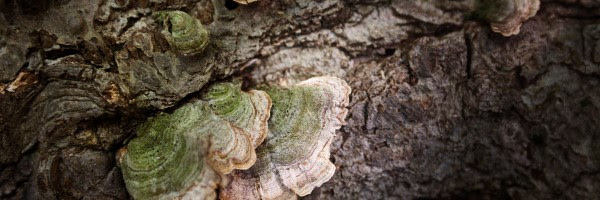

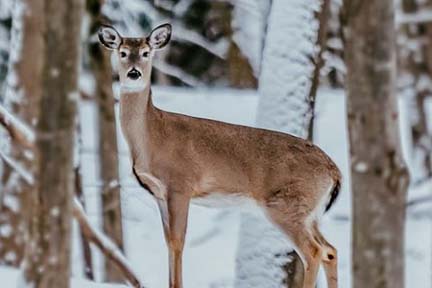

 Want to see more pictures like this, taken by Michigan state parks photo ambassador
Want to see more pictures like this, taken by Michigan state parks photo ambassador  If you’ve been thinking about signing up for this year’s Bob Ross-inspired Happy Little (Virtual) 5K, now is the time. Registration for this state parks-supporting race closes March 1.
If you’ve been thinking about signing up for this year’s Bob Ross-inspired Happy Little (Virtual) 5K, now is the time. Registration for this state parks-supporting race closes March 1.
 Looking for creative ways to get your preK-12 classrooms and other youth groups outdoors to learn about Michigan’s mighty forests? Apply for the Wheels to Woods program!
Looking for creative ways to get your preK-12 classrooms and other youth groups outdoors to learn about Michigan’s mighty forests? Apply for the Wheels to Woods program!
 Are you looking for a summer volunteer opportunity that allows you to spend time on your favorite Michigan lake? Look no further than the
Are you looking for a summer volunteer opportunity that allows you to spend time on your favorite Michigan lake? Look no further than the  Many Michiganders love the thousands of inland lakes scattered across our state for their beauty, recreational enjoyment, cultural connections and more, but not everyone knows the benefits of natural, healthy shorelines – or how residents and visitors can help protect these places.
Many Michiganders love the thousands of inland lakes scattered across our state for their beauty, recreational enjoyment, cultural connections and more, but not everyone knows the benefits of natural, healthy shorelines – or how residents and visitors can help protect these places.